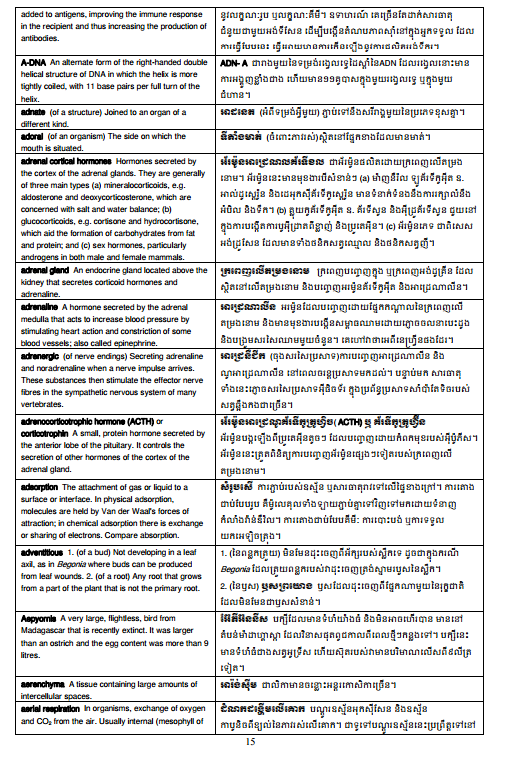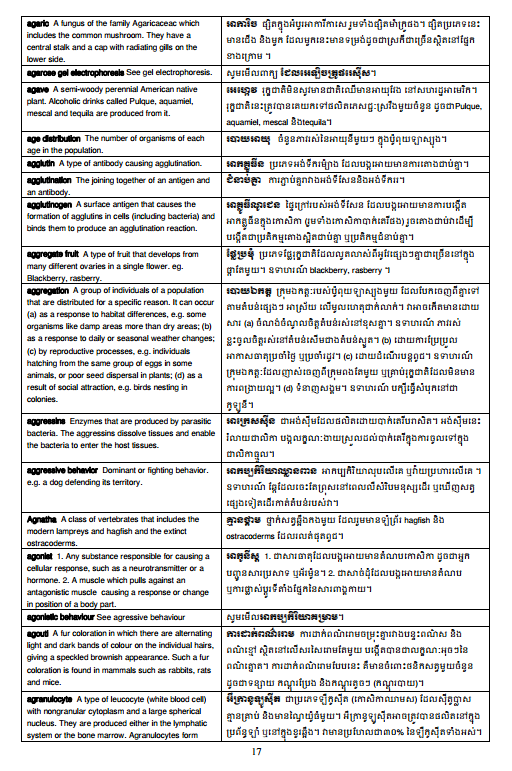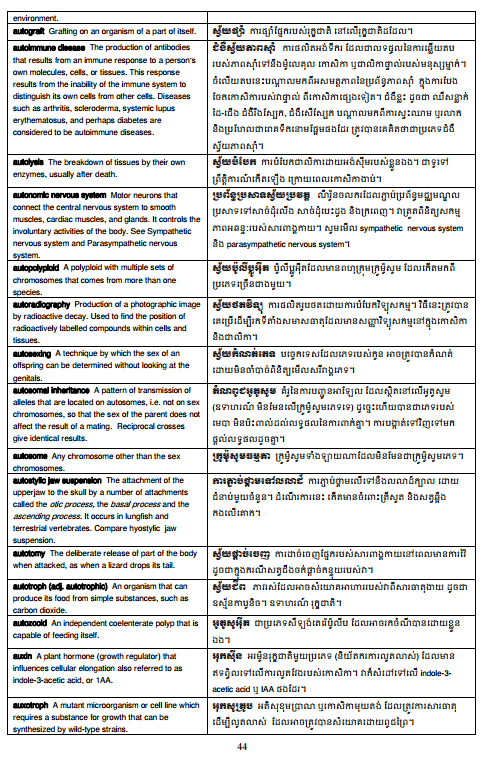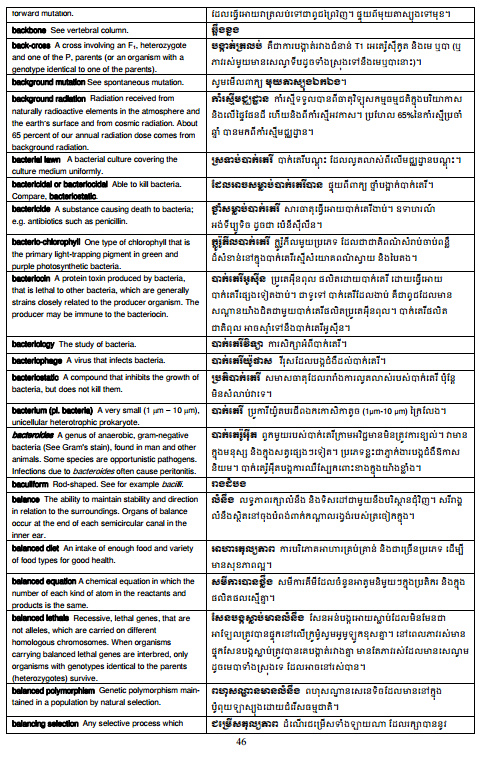Preface to the Third Edition (Revised)
Preface to the Third Edition (Revised)
This dictionary is the work of many teachers and some students in the Biology
department of The Royal University of Phnom Penh. It has developed over the last three
years in response to the need of Biology students to learn Biology from English text books.
We have also tried to anticipate the future needs of Biology students and teachers in
Cambodia. If they want to join the global scientific community; read scientific journals, listen to
international media, attend international conferences or study outside Cambodia, then they
will probably need to communicate in English. Therefore, the main aim of this book is to help
Cambodian students and teachers at the university level to understand Biology in English.
All languages evolve. In the past the main influence on Khmer language was French.
Nowadays, it is increasingly English. Some technical terms have already been absorbed from
French and have become Khmer. Nowadays new technical terms are usually created in
English and are used around the world. Language is also created by those who use it and
only exists when it is used. Therefore, common usage has also influenced our translation. We
have tried to respond to these various influences when preparing this dictionary, so that it
represents many different opinions - old and new, Francophile, Anglophile and Khmer. But
there will always be some disagreement about the translation of some terms. This is normal
and occurs in all languages. It is a healthy sign of a language that is actively growing.
Since understanding Biology in English is the main aim of this dictionary, we have tried
to use English that is suitable for second language speakers, and Khmer words whose
meaning is easy to understand. For those words that are new to the English language, and
could not be easily translated into Khmer, we have given Khmer spelling that will help with
pronunciation.
But we must remember that: the definitions of words can change over time eg.
Mongolism is now Down’s Syndrome or Trisomy 21; there is sometimes more than one
correct definition eg. wetland has a wide range of meaning ; and, different spellings can be
correct eg feces = faeces. This book is an attempt to represent a consensus of current
usage, but further change is inevitable.
We hope that this book will become a useful reference for Cambodian students and
teachers and assist them in accessing the wealth of information about Biology that is
available in English.
David Ford
Biology Department, RUPP, 2002
Acknowledgements
Many thanks to the following people for their hard work: Hap Sophorn (translation and
editing), Hang Chan Thon (translation and editing), Men Noeun (translation), Khieng Sothy
(translation). Also thanks to the following people for their assistance in specific subject areas:
Thai Ieng Ly (anatomy), Thou Phorn (genetics), Ke Kuntheamealea (biochemistry), Kop
Sokhom (vertebrates), and Kauv Samnang (invertebrates). Also thanks to Mr Peter Leth for
his help in sorting the Khmer – English section. Finally, this book would not have been
produced without the assistance of the NGOs Australian Volunteers International and
MaryKnoll.




















































Post a Comment
0 comments
Dear readers, after reading the Content please ask for advice and to provide constructive feedback Please Write Relevant Comment with Polite Language.Your comments inspired me to continue blogging. Your opinion much more valuable to me. Thank you.